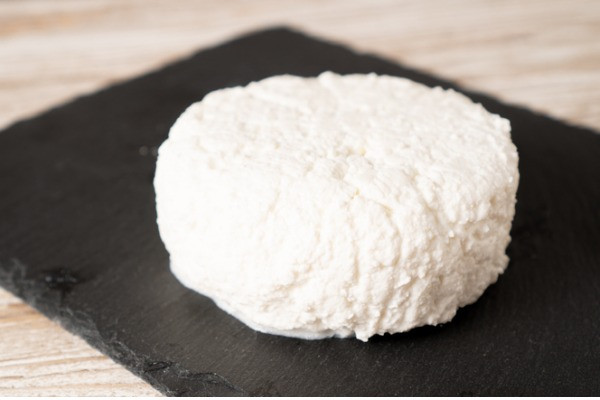What is Cottage Cheese?
Cottage cheese is a great way to introduce real food to kibble-fed pets and is also a great source of protein as it’s low in fat.
Cottage cheese is a soft cheese made from the curds of cow’s milk that has a mild flavor. It’s known as a fresh cheese as it’s not aged. Some of the best cottage cheese is from cows that are raised grass-fed and without toxic hormones as cottage cheese is derived from the milk of the cow then drained so the whey remains.
The better quality of the milk the better the cottage cheese and the more nutritious it is for both you and your pet. Cottage cheese is a great protein source to introduce your pet as, like eggs, it’s a protein that is slow to digest so it’s especially great for that pets that are always hungry.
Benefits of Cottage Cheese
- High dietary protein. aids muscle growth and repair
- Highly nutritious
- Good source of a healthy fat
- Contains phosphorus that helps energy levels
- Its vitamin B12, B6, and folate helps cognitive function
- Is a good source of calcium for bone health
- Helps maintain healthy cells
- Great for helping lose weight as it’s slow to digest
- Can help with insulin resistance
- High in selenium which helps protect the blood
- Full of vitamins, minerals, and essential amino acids
Is Cottage Cheese Safe for Pets?
Yes. If it’s from a reputable organic farm, cottage cheese is great to feed pets.
Avoid buying any cottage cheese that has a list of ingredients. Cottage cheese is made from milk. The more ingredients listed the less healthy the food and the further you’re away from feeding your pet a highly beneficial and nutritious cottage cheese.
Stick to the original made from real milk and organic milk where possible for the health of your pet otherwise, you’re likely to end up with a product that has additives, GMO ingredients added, etc.
Ultimately remember that cottage cheese is made from cow’s milk, so if you’re following a species-appropriate diet with your pet, this would be something your pets would snack on as and when, as opposed to consuming every day in vast amounts.
Side Effects
It is not recommended for those cats or dogs that have dairy issues. However, if you’re pet is raised on a species appropriate diet, it’s unlikely this will cause a problem for your pet.
If overfed, your pet may suffer with gas or diarrhoea
How to Feed Cottage Cheese to Cats & Dogs
As with all foods rotate the protein sources so your cat and dog get a whole host of nutrition from real food and in line with the seasons. Seasonal feeding and offering a variety of foods promotes well-being and good health in your pet on a bone-deep level.
*Cottage cheese shouldn’t be a staple food for cats. Being obligatory carnivores, raw meat is their essential food for survival. Use cottage cheese as a treat or mix in with their other food for a limited period.
Feed 1 to 2 teaspoons of cottage cheese for cats and small dogs, up to half a cup for large breeds.
Remember each pet is an individual so some pets may not tolerate the recommended amount. If this is the case with your pet. reduce how much you’re feeding so you find the happy balance between your pet eating this beneficial protein but not having diarrhoea or gas.
If you’re giving this to your kibble feed cat or dog, ideally feed cottage cheese a few hours before feeding kibble so their body has time to draw on all the nutrition. It can also be mixed in with kibble, although this is not recommended as a long-term solution.
Real food and fake foods such as kibble have very different digestion times. Always feeding them together can impact your pet’s digestion whilst inhibiting the body’s ability to draw proper nutrition from the real food that aids metabolic processes. This then impacts everything in the body.
NOW, we’d love to hear your feedback so LEAVE A COMMENT and feel free to share this with people you think will love it.
Natural lifestyle, naturally health, naturally thriving!!

